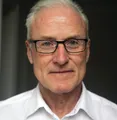Farr on PR: Crossing the line: the tricky transition from hack to flack
There are no statistics but I would wager that most journalists who turn their hand to corporate communications fail. Not because they can’t do it, rather because they hate it. And the more seasoned a journo is, the more difficult the transition.
I was a journalist for 10 years (including for IFR). I enjoyed it immensely. I was based in Hong Kong, London and New York. That still sounds cool to me.
Yes, the hours could be long, my contacts (investment bankers) challenging, the repetition tedious. But I felt it a privilege to be afforded licence to be a journalist. Within my beat, I was largely free to follow the stories I thought important. I could ask awkward questions, and write articles I knew would ruffle feathers.
They were different times back then and once settled in and contacts established, I would be invited to all sorts of things: conferences in Monaco or Buenos Aires; deal signings in the Black Forest (boar hunting thrown in!). It was fun. In Hong Kong I sometimes went undercover, posing as a property developer to get the low down on real estate deals, or as an exporter trying to ensnare traders we suspected of sanctions busting (this was, to be clear, pre-IFR). Scary at times, but also exciting.
I had a great time but ultimately it was not what I wanted to do forever. More importantly, it didn’t pay that well. So I thought I would practise financial PR for a bit until I figured out what I wanted to do when I grew up.
Foot in the door
I thought the transition from poacher to gamekeeper would be straightforward. I was wrong. The main asset I had was knowledge of capital markets and some modest fluency in the language of the business. Fortunately for me, that was enough to get a foot in the door. Back in the day, such experience was in relatively short supply.
I cut my teeth at a London PR agency. It wasn’t pretty but I was saved by the only other assets I had – good relationships among the journos with whom I had worked and an understanding of the media.
It took quite a while to shrug off my journalistic bent. I remember sitting in client meetings with journalists, urging the reporter through ESP to ask the question the client dreaded most. The conversation would steer close to the sensitive topic then veer away. Outwardly, I was calm but inside I was shouting, “no, no, come back. You’re so close.” I was still chasing the story.
The main hurdle for journalists looking to swap sides is adapting to the demands of your new masters. They most certainly are not editors looking to break exclusives and reveal the “truth”. They are corporate animals driven by commercial aspirations. Journalists are a necessary evil, as far as they are concerned. To be tolerated but managed. And you, young PR exec, are on the bankers’ side. So, do as you're told and manage the media. Oh, and kill any nasty stories, yes?
Shift in mindset
This is where many journalists stumble. Not all. Some have gone on to become great leaders of PR teams or even set up their own successful PR agencies. But others are not ready for this shift in mindset. One former senior journalist, once of a major Fleet Street title, developed a somewhat fiery relationship with his bosses at a Swiss bank (this is many years ago, by the way) and lasted about six months. He couldn’t handle the change in priorities and, as it turned out, his bank bosses couldn’t handle his habit of giving info to his old journalist mates.
I, on the other hand, found I rather liked it on the other side. As I had hoped, I soon moved inhouse, to Deutsche Bank (or Deutsche Morgan Grenfell as it was then) and found myself navigating that rocky path between my banker stakeholders on one side and journalists on the other. I discovered, to my surprise, I could empathise with both. The journalists, yes, since I had been one of them and understood where they were coming from. On the banking side, I liked the cut and thrust of international finance and was drawn to the soap operas and central casting that lives within all big operations.
My boss at the PR agency where I started warned me, after notably not trying to keep me with a wage hike, that I would crash and burn in that nasty, vicious corporate world. I didn’t have the skills, he said. I still remind him of that thoughtful encouragement. As it happened, I had stumbled into something I enjoyed and wasn’t too bad at. And it definitely paid more than journalism.
Jezz Farr has been a senior communications adviser to major international banks for more than 25 years






